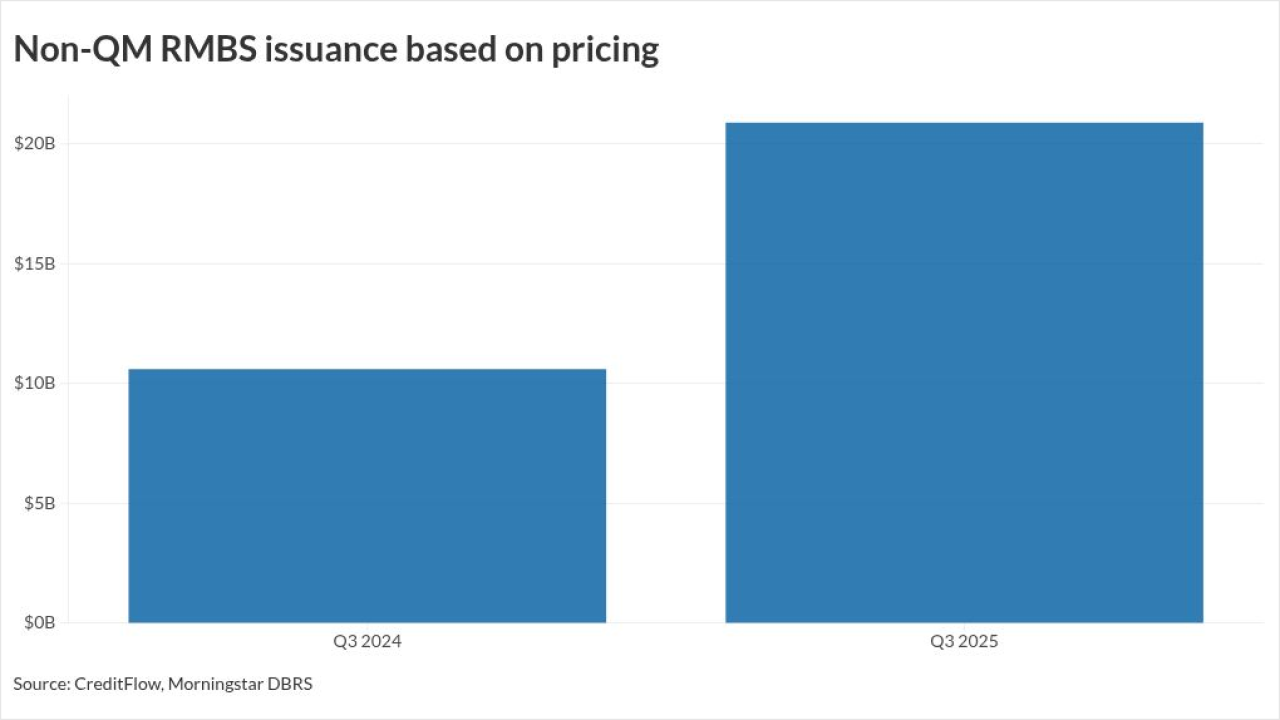
WASHINGTON — The Federal Reserve's Federal Open Market Committee Wednesday left interest rates — already at a
Even so, Fed Chairman Jerome Powell suggested in a press conference following the FOMC meeting that rate cuts may come later this year.
"We believe that our policy rate is likely at its peak for this tightening cycle, and that if the economy evolves broadly as expected, it will likely be appropriate to begin dialing back policy restraints at some point this year," he said.
But the data that the FOMC uses to decide the time is right to cut rates has not yet suggested that rates are too high, Powell said, and would be unlikely to change significantly between Wednesday's meeting and the next FOMC meeting in March.
"I don't think it's likely that the committee will reach a level of confidence by the time of the March meeting to identify March as the time to do that," he said. "But that's to be seen."
FOMC's Wednesday decision will hold the Fed's benchmark interest rate steady between 5.25 and 5.5 percent. The Fed clarified that it wants to see more progress on inflation before it commits to more cuts. Officials, including Fed Gov. Christopher Waller,
"The Committee does not expect it will be appropriate to reduce the target range until it has gained greater confidence that inflation is moving sustainably toward 2%," the Fed said in its post-meeting statement on Wednesday.

Powell did say that the FOMC will begin considering whether to slow the pace of quantitative tightening — letting securities roll off its balance sheet — at the March meeting, but insisted that any discussions about adjustments to the balance sheet will happen independently from conversations about rate changes, Powell said.
"We see those as independent tools," he said. "If you're normalizing policy, you might be reducing rates but continuing to run off the balance sheet. In both cases that is normalization, but from a strict monetary policy standpoint you could say that we're loosening and not tightening, so that could happen."
The Fed's decision comes as election-year politics are beginning to take hold in earnest, bringing heightened scrutiny on the central bank and its monetary policy decisions. While President Joe Biden has touted a generally improving economy, some progressives — including Senate Banking Committee Chairman Sherrod Brown — are pressing regulators on high costs, particularly around housing.
"For working Americans and small businesses who already feel the crush of inflation, higher housing costs and reduced access to credit will only make it worse. Keeping interest rates high will be detrimental to American workers and their families and do little to bring down prices or promote moderate economic growth," Brown said in a letter to Powell earlier this week. "While more must be done to address the fact that costs remain too high, it is becoming increasingly evident that restrictive monetary policy is no longer the right tool for combating inflation, and I urge the Federal Reserve to ease monetary policy early this year."
While the Fed receives those kinds of suggestions from lawmakers all the time without having them inform its monetary policy choices, Brown's letter reflects growing concerns about the economy, and general anger about the rising cost of living.
Powell, at the press conference following FOMC's rate decision, said that the Fed understands its role in the housing market, but that the central bank's mandate from Congress is around price stability and employment. Powell said that price stability is critically important for the people on the lower end of the income spectrum.
"We're also well aware that when we cut rates at the beginning of the pandemic, for example, the housing industry was helped more than any other industry," Powell said. "When we raise rates, the housing industry can be hurt because it's a very interest rate-sensitive sector. What society has asked us to do is to get inflation down and the tools that we use to do it are interest rates."





